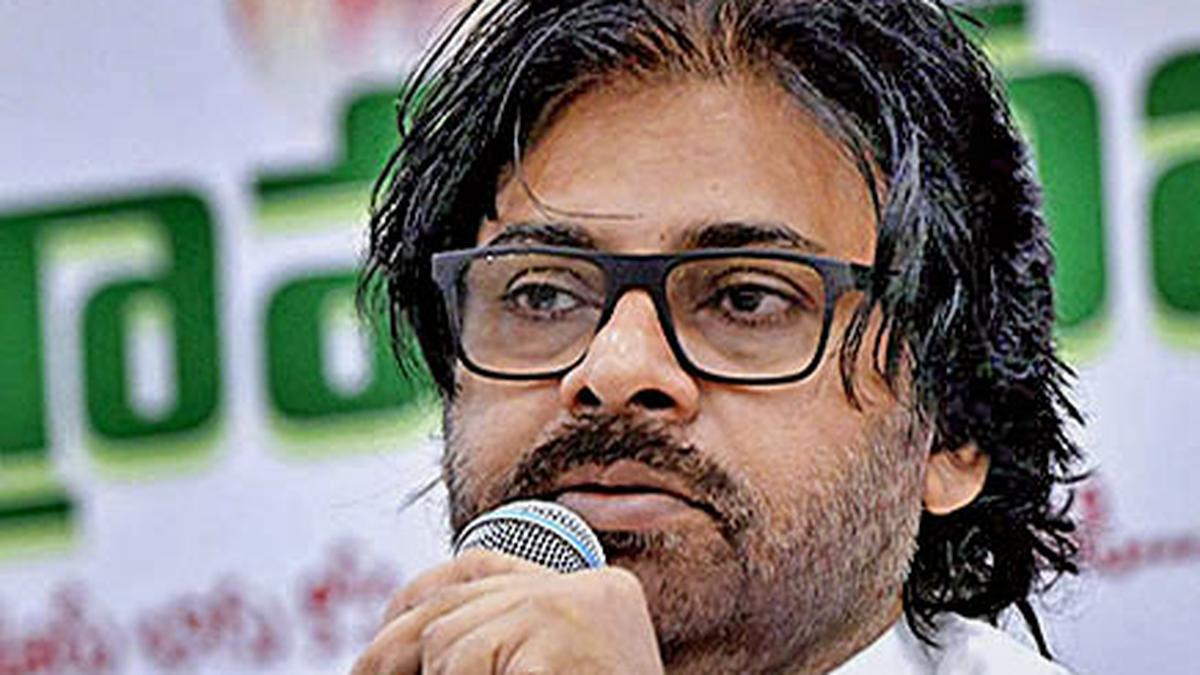As World Wetlands Day approaches, few may realize the hidden gem that wetlands are for ecological balance. Deputy Chief Minister Pawan Kalyan, in a recent press release, shed light on their multifaceted importance, stressing that their conservation doesn't just lie in the hands of the government but in our collective will. Imagine a community united for a cause as vital as protecting our natural resources; it's not just a dream but a necessary step in preserving the environment for future generations.
The Importance of Wetlands for Ecological Balance
Wetlands are often overlooked. Yet, they play a crucial role in maintaining ecological balance. In Andhra Pradesh alone, there are over 25,000 wetlands. These vital ecosystems contribute significantly to the environment. But what makes wetlands so important?
1. Reducing Earthquake Intensity
One surprising benefit of wetlands is their ability to reduce earthquake intensity. How can a body of water help with seismic activity? Wetlands act as natural buffers. They absorb shock waves and vibrations from the earth, lessening the impact of earthquakes. This is especially important in regions prone to seismic activity. The Deputy Chief Minister, K. Pawan Kalyan, emphasized this point. He stated that wetlands are vital for earthquake management.
2. Regulating Climate Change
Wetlands also play a vital role in regulating climate change. They act as carbon sinks, absorbing carbon dioxide from the atmosphere. This helps mitigate the effects of climate change. Wetlands store carbon in their vegetation and soil. When these ecosystems are destroyed, the stored carbon is released back into the atmosphere, contributing to global warming. Protecting wetlands is crucial for maintaining a stable climate.
3. Supporting Biodiversity
Another significant function of wetlands is their support for biodiversity. They provide habitats for a wide variety of species. From fish to birds, wetlands are teeming with life. This rich biodiversity is essential for ecological balance. Wetlands serve as breeding grounds for many aquatic species and migratory birds. They also support numerous plant species, which in turn sustain various animal populations. The loss of wetlands would mean the loss of countless species.
Natural Buffers Against Disasters
Beyond their direct ecological benefits, wetlands serve as natural buffers against disasters. They help control flooding by absorbing excess rainwater. This protects surrounding communities from flood damage. During heavy rains, wetlands can store large amounts of water, preventing it from overwhelming urban areas. They act like sponges, soaking up water and releasing it slowly. This function is critical in climate change scenarios, where extreme weather events are becoming more common.
The Role of Kolleru Lake
In Andhra Pradesh, Kolleru Lake stands out. It is recognized as a Ramsar site, which means it is internationally recognized for its ecological importance. Kolleru is one of India’s largest freshwater lakes and plays a crucial role in the local ecosystem. It supports a diverse range of wildlife, including migratory birds. The lake is not just a natural wonder; it is a lifeline for the surrounding communities.
Community Involvement
Pawan Kalyan stressed that environmental conservation is not just for the government. “Each one of us has to join the cause,” he said. This call to action is vital. Community involvement can make a significant difference in protecting wetlands. Simple actions, like reducing waste and preventing pollution, can help preserve these ecosystems.
Conclusion
In summary, wetlands are invaluable for ecological balance. They reduce earthquake intensity, regulate climate change, and support rich biodiversity. With over 25,000 wetlands in Andhra Pradesh, the importance of these ecosystems cannot be overstated. Protecting them is essential for a sustainable future. As Pawan Kalyan pointed out, collective efforts are necessary. Every individual can contribute to the conservation of these vital resources.
Conservation Initiatives by the Government
In recent times, the importance of wetlands has gained significant attention, especially in Andhra Pradesh. Deputy Chief Minister K. Pawan Kalyan has been vocal about the need for concerted efforts to protect these vital ecosystems. On the eve of World Wetlands Day, he highlighted their crucial role in maintaining ecological balance. But what does this mean for the environment and the community?
Measures to Prevent Encroachments
One of the pressing issues facing wetlands today is encroachment. This refers to the illegal occupation of land that is designated as wetland. The government is actively working to remove these encroachments. This is not just about protecting land; it’s about safeguarding biodiversity and ensuring that these ecosystems can function properly.
- Illegal structures are being dismantled.
- Strict laws are being enforced to prevent future encroachments.
- Regular monitoring is being conducted to keep an eye on vulnerable areas.
Why is this important? Wetlands serve many purposes. They help in flood control, water purification, and even in reducing earthquake intensity. By preventing encroachments, the government is not just protecting land; they are protecting our future.
Defining Clear Geographical Boundaries of Wetlands
Another critical initiative is the definition of clear geographical boundaries for wetlands. This is essential for effective management and conservation. When boundaries are well-defined, it becomes easier to monitor and protect these areas from illegal activities.
The government has already taken steps to establish these boundaries. For instance, the Kolleru Lake, recognized as a Ramsar site, has specific demarcations that help in its preservation. By clearly outlining these areas, the government aims to create a framework that supports conservation efforts.
But what happens when boundaries are not clear? It leads to confusion. It makes it easier for encroachers to claim land and disrupt the ecosystem. Clear boundaries help everyone understand where conservation efforts should be focused.
Community Involvement in Conservation Efforts
Environmental conservation is not solely the responsibility of the government. As Kalyan pointed out, “Environmental conservation is not just the responsibility of governments. Each one of us has to join the cause.” Community involvement is crucial for the success of any conservation initiative.
- Public awareness campaigns are being launched.
- Local communities are encouraged to participate in conservation activities.
- Educational programs are being implemented to inform people about the importance of wetlands.
These efforts aim to foster a sense of ownership among community members. When people feel connected to their environment, they are more likely to take action to protect it. For example, local fishermen can play a vital role in monitoring wetland health. Their traditional knowledge can provide valuable insights into the ecosystem's condition.
Data Supporting Conservation Efforts
Data shows that the government has defined boundaries for key wetlands. This is a step in the right direction. Moreover, ongoing removal of illegal encroachments indicates a commitment to preserving these ecosystems. The government’s actions align with the growing global awareness of environmental issues.
In conclusion, the initiatives being taken by the government to conserve wetlands are a blend of enforcement, education, and community engagement. These efforts highlight the importance of wetlands in supporting biodiversity and ecological balance. As Kalyan emphasized, collective efforts are essential. Only together can we ensure the protection of these vital ecosystems for future generations.
Community's Role in Wetland Conservation
Individual Responsibility in Environmental Protection
Wetlands are vital ecosystems that support a rich diversity of life. They provide numerous benefits, from flood control to water purification. But who is responsible for their protection? The answer is simple: everyone. Each individual has a role to play in environmental conservation. Whether it’s reducing waste, participating in clean-ups, or advocating for sustainable practices, every action counts.
As K. Pawan Kalyan stated,
"Environmental conservation is not just the responsibility of governments. Each one of us has to join the cause."This sentiment resonates deeply. When individuals take ownership of their local ecosystems, the collective impact can be substantial. Simple actions, like planting trees or educating others about wetlands, can create a ripple effect that leads to significant change.
Local Communities as Stewards of Wetlands
Local communities often serve as the first line of defense in wetland conservation. They possess unique knowledge of their surroundings and have a vested interest in maintaining the health of these ecosystems. In many cases, their livelihoods depend on the resources wetlands provide. For instance, fishing, farming, and tourism are all activities linked to the health of wetland areas. When communities recognize their role as stewards, they become powerful advocates for protection and restoration.
In Andhra Pradesh, there are over 25,000 wetlands, each crucial for local biodiversity. The Kolleru Lake, recognized as a Ramsar site, is a prime example. It is one of India’s largest freshwater lakes and supports countless species. Local communities around Kolleru Lake have taken initiatives to protect this vital resource. They have formed groups to monitor water quality and prevent illegal fishing, demonstrating that community-led efforts can lead to positive outcomes.
Examples of Community-Led Conservation Efforts
Across the globe, there are numerous examples of successful community-led conservation efforts. In the United States, the Everglades restoration project highlights the power of local engagement. Residents have come together to restore natural water flow and improve habitat for wildlife. Similarly, in Africa, local communities are managing wetlands to enhance fish populations and protect biodiversity.
These examples illustrate that when communities unite for a common cause, they can achieve remarkable results. By sharing knowledge and resources, they not only protect their environment but also enhance their livelihoods. The benefits of such initiatives extend beyond local boundaries, contributing to global ecological health.
Case Studies and Their Impact
Case studies from various regions show that community involvement in wetland protection leads to significant benefits. For example, in the Philippines, local fishermen have collaborated with environmental groups to restore mangrove forests. This not only improved fish stocks but also provided natural barriers against storm surges. Such initiatives demonstrate the interconnectedness of environmental health and human well-being.
Moreover, local livelihoods heavily depend on these ecosystems. Thousands of people rely on wetlands for their daily sustenance. When these areas thrive, so do the communities that depend on them. This symbiotic relationship underscores the importance of community stewardship in conservation efforts.
Conclusion
In conclusion, the role of communities in wetland conservation cannot be overstated. Individual responsibility, community stewardship, and collaborative efforts are essential for protecting these vital ecosystems. As K. Pawan Kalyan emphasizes, it is not solely the duty of governments to safeguard the environment. Each person must contribute to the cause. By working together, communities can ensure that wetlands continue to provide their invaluable services for generations to come. The call to action is clear: join the cause, protect our wetlands, and secure a sustainable future.



